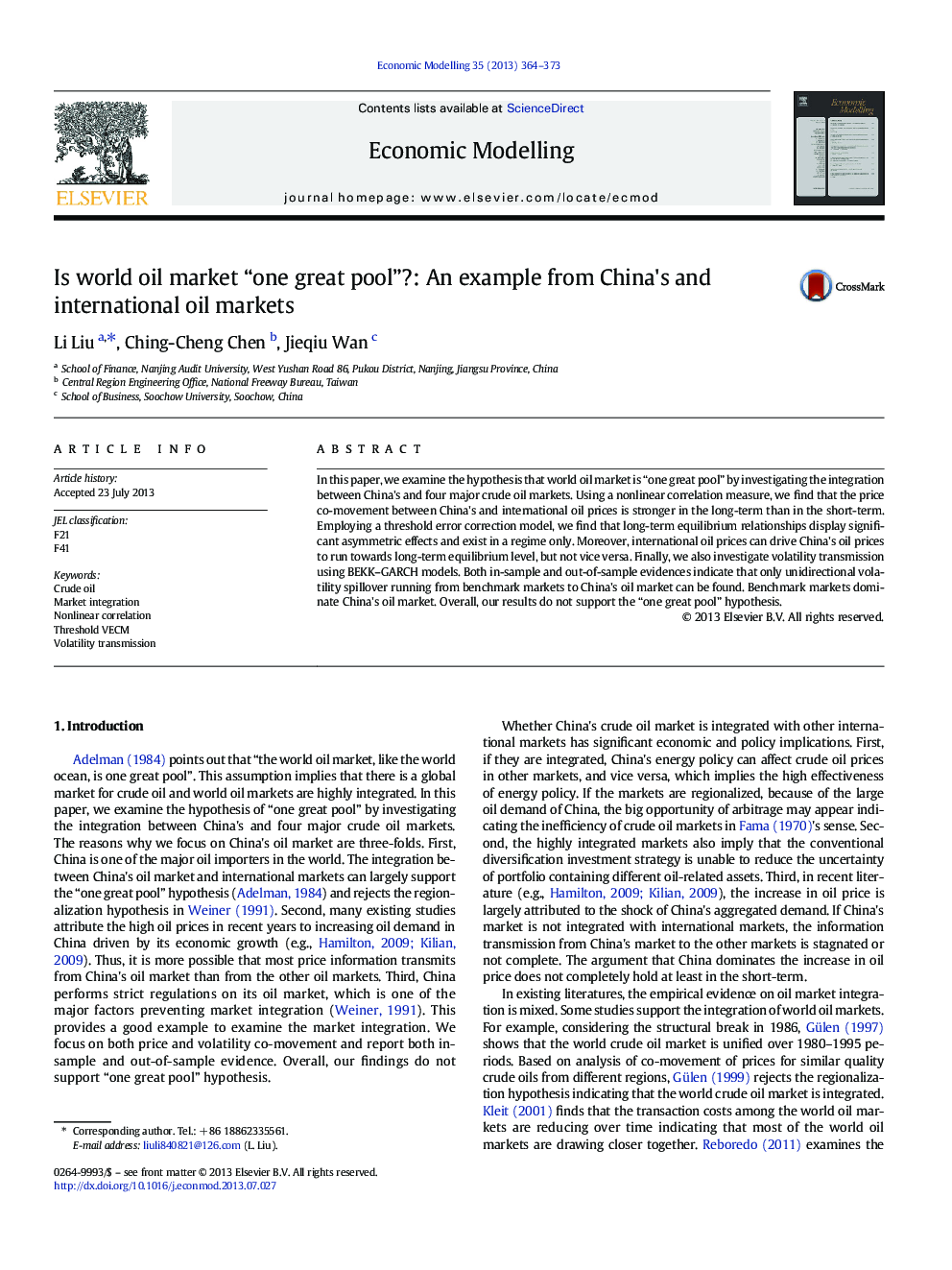| Article ID | Journal | Published Year | Pages | File Type |
|---|---|---|---|---|
| 5054625 | Economic Modelling | 2013 | 10 Pages |
â¢Using a nonlinear correlation quantifies the price co-movement.â¢The relationships between China's and international oil prices are asymmetric.â¢International oil price volatility can provide useful information to forecast China's oil price volatility.â¢Our results do not support the “one great pool” hypothesis.
In this paper, we examine the hypothesis that world oil market is “one great pool” by investigating the integration between China's and four major crude oil markets. Using a nonlinear correlation measure, we find that the price co-movement between China's and international oil prices is stronger in the long-term than in the short-term. Employing a threshold error correction model, we find that long-term equilibrium relationships display significant asymmetric effects and exist in a regime only. Moreover, international oil prices can drive China's oil prices to run towards long-term equilibrium level, but not vice versa. Finally, we also investigate volatility transmission using BEKK-GARCH models. Both in-sample and out-of-sample evidences indicate that only unidirectional volatility spillover running from benchmark markets to China's oil market can be found. Benchmark markets dominate China's oil market. Overall, our results do not support the “one great pool” hypothesis.
